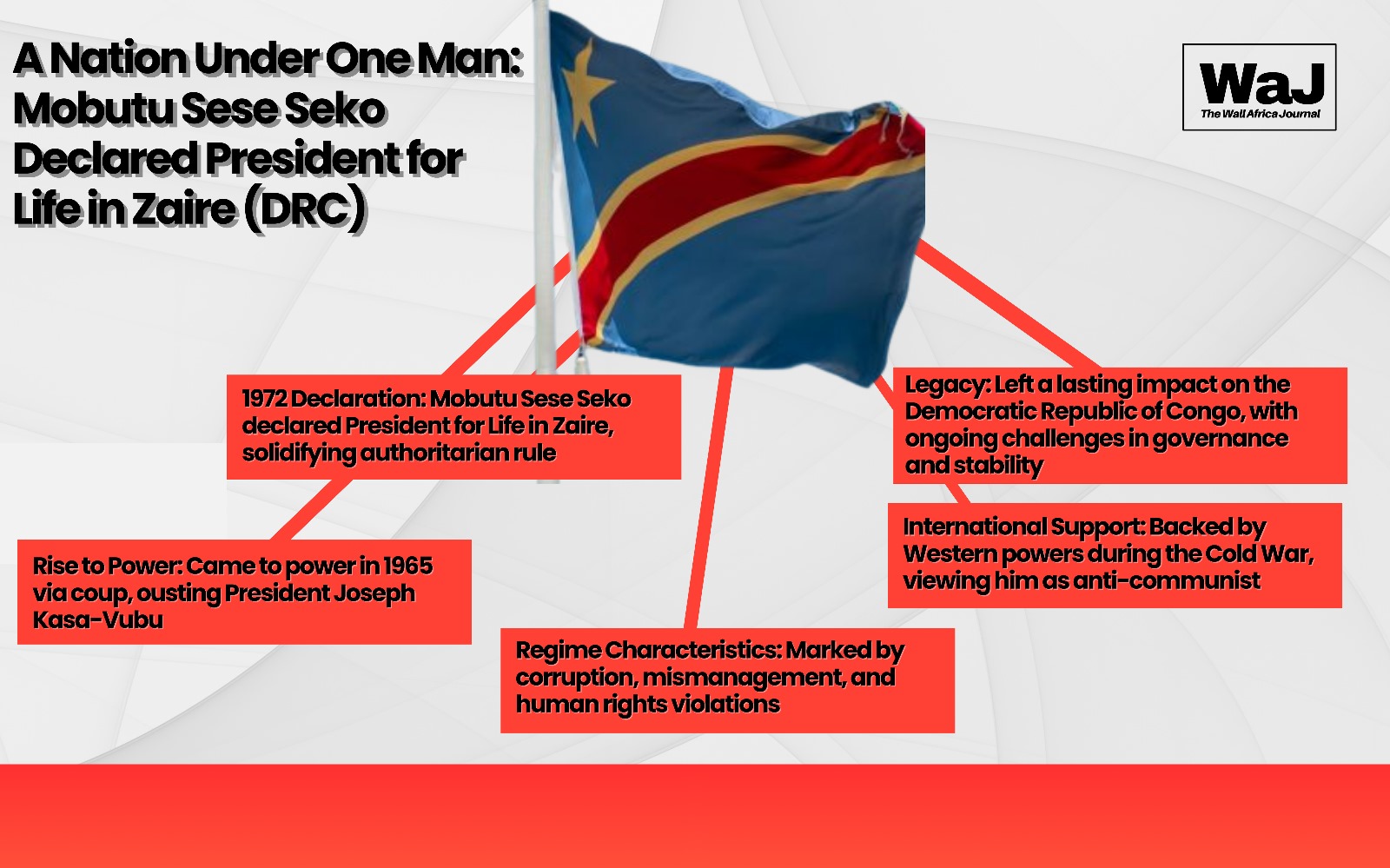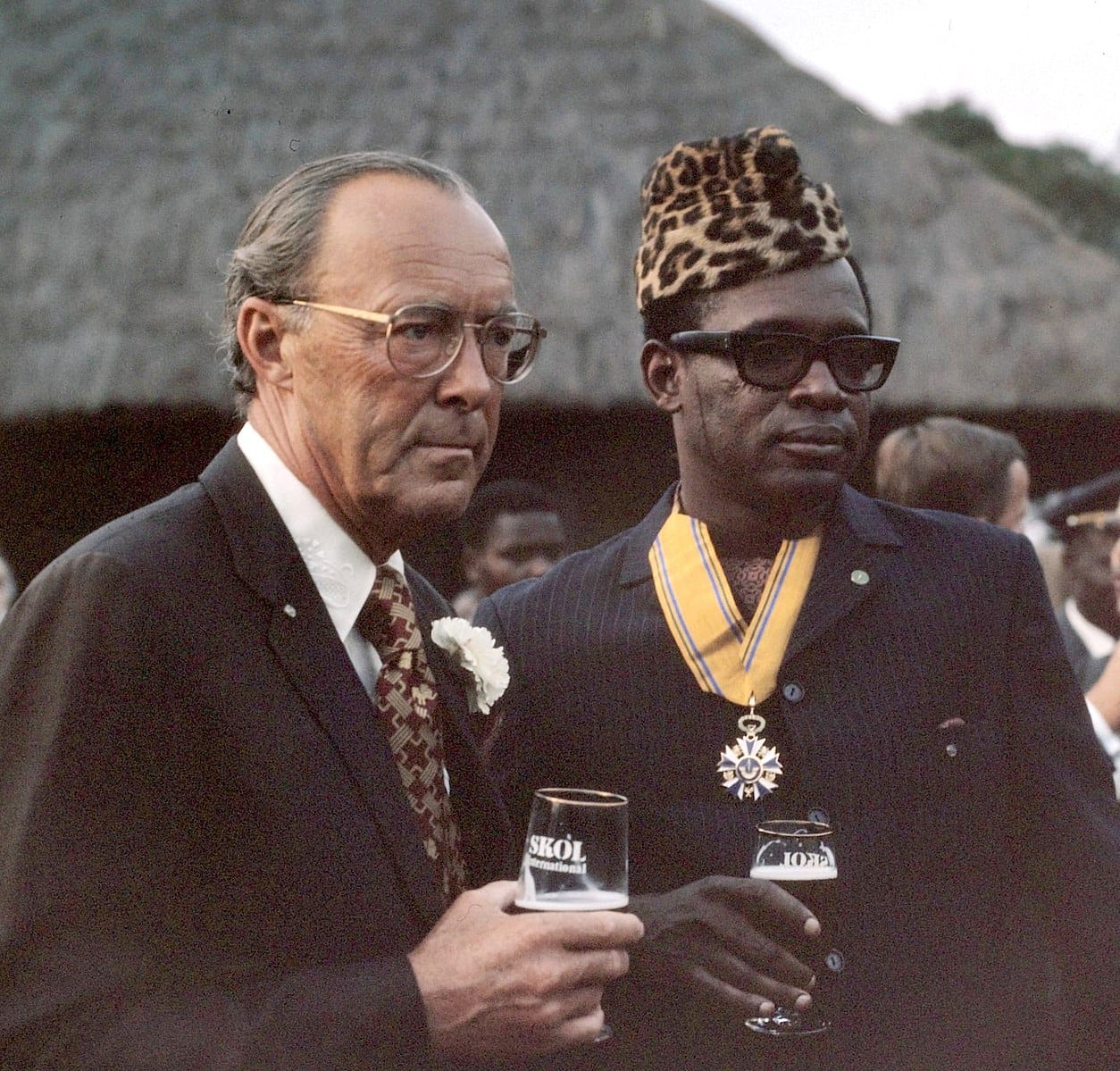In 1972, the political landscape of Zaire, now known as the Democratic Republic of Congo, shifted dramatically when Mobutu Sese Seko was declared its president for life. This proclamation was emblematic of Mobutu’s consolidation of power and the authoritarian nature of his regime, which would persist for over three decades.

The Rise of Mobutu Sese Seko
Mobutu, originally Joseph-Désiré Mobutu, came to power in 1965 after orchestrating a coup that ousted President Joseph Kasa-Vubu. His rise was marked by political manipulation and the exploitation of national crises, allowing him to establish a regime characterized by repression and terror. Following the chaos of the Congo Crisis, Mobutu positioned himself as a stabilizing force, leveraging his military background and connections within the political elite.

The Declaration of Life Presidency
While the specific declaration of Mobutu as president for life in 1972 is not widely documented, he did suspend constitutional governance and ban all political parties except for his own, the Popular Movement of the Revolution (MPR), effectively dismantling the democratic framework in Zaire. This move was framed as a necessity to bring unity and progress to the nation amidst ongoing political instability.
The Impact of Mobutu’s Regime
Mobutu’s presidency was marked by rampant corruption, mismanagement, and a kleptocratic system that prioritized his interests and those of his allies over the well-being of the Zairian people. While he amassed immense wealth, the majority of the population faced severe poverty and deprivation. His regime’s brutality was evident in the widespread human rights violations, with dissent met with harsh reprisals, including public executions and imprisonment of political opponents.
International Support and Consequences
During the Cold War, Mobutu enjoyed considerable support from the United States and other Western powers, who viewed him as a bulwark against communism in Africa. This backing allowed him to maintain his grip on power despite increasing domestic unrest and international criticism. However, the relationship began to deteriorate in the late 1980s as calls for democratization intensified, leading to Mobutu’s eventual decline.

Legacy and Reflection
The declaration of Mobutu Sese Seko as president for life in Zaire remains a significant chapter in the nation’s tumultuous history. His authoritarian rule left an indelible mark on the Democratic Republic of Congo, shaping the political and economic landscape for generations to come. The legacy of corruption and instability continues to influence contemporary governance and societal challenges in the country, underscoring the importance of understanding this pivotal period in Zairian history.


